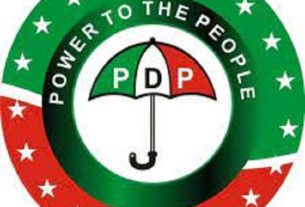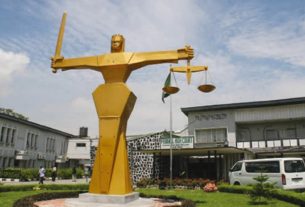“The most urgent task, therefore, facing the peoples of Northern Nigeria is to overcome fear and suspicion, jettison unhealthy division and create consensus around common goals and aspirations. These are necessary for creating the enabling environment to address our most stubborn challenges such as insecurity, widespread poverty, the collapse of institutions and services, etc., so that order, peace, and prosperity may once again return to our region.”
These recommendations form the major plank of the measures canvassed yesterday by prominent Northern leaders towards solving the prevailing problems in that section of the country.
The leaders included a former chairman of the Independent National Electoral Commission, INEC, Prof Attahiru Jega: the 1993 presidential candidate of the defunct National Republican Convention, Ibrahim Tofa; ex-Secretary to the Government of the Federation, Yayale Ahmed; former governors, ministers, senators and military officers have recommended ways out of the crises plaguing Northern Nigeria.
At their crucial meeting in Abuja, they identified some of the problems clogging the wheel of growth and development in the 19 Northern states and the Federal Capital Territory (FCT).
Besides, they announced the formation of the ‘Abuja Roundtable’, a non-partisan and non-governmental group, designed to address the challenges facing the region.
After the meeting, Tofa addressed journalists, saying: “These challenges are many and they cut across the region. These have manifested in the collapse of institutions and services, widespread poverty and inequality, mutual suspicion, endemic insecurity, disunity, despair, and a dearth of hope across the region. Every community has challenges. But to overcome challenges, there is a need to admit their existence.”
They blamed Northern leaders for their perceived failure to help meaningfully over the years.
According to them: “We have no difficulty admitting all is not well with Northern Nigeria and taking primary or vicarious responsibility for the current state of affairs. We must all – leaders, followers, and passive onlookers – accept our share of responsibility. But beyond that, we must collectively resolve to take action and remedy what went wrong going forward”.
They noted that succeeding generations would bear “the consequences of our action and inaction, even though they bear no responsibility for how we got here. No parent would wish to bequeath a precarious future to his child and no price is too high to pay to secure the future of succeeding generations of Northerners.”
The leaders said the conditions and forces of division have taken root and have been left to fester unchecked over a long period. They expressed hope that as collective victims who have paid the price of division
However, they noted: “Our people have arrived at the realisation that unity is required to resolve other challenges afflicting the region. Recent consultations with eminent political, traditional, and religious leaders across the North are encouraging.”
They expressed a strong desire to remove all obstacles to Northern unity and a commitment to overcome its challenges.
“We will widen and deepen these consultations in the coming weeks, months and, if necessary, years in order to attain our objectives,” they said.





